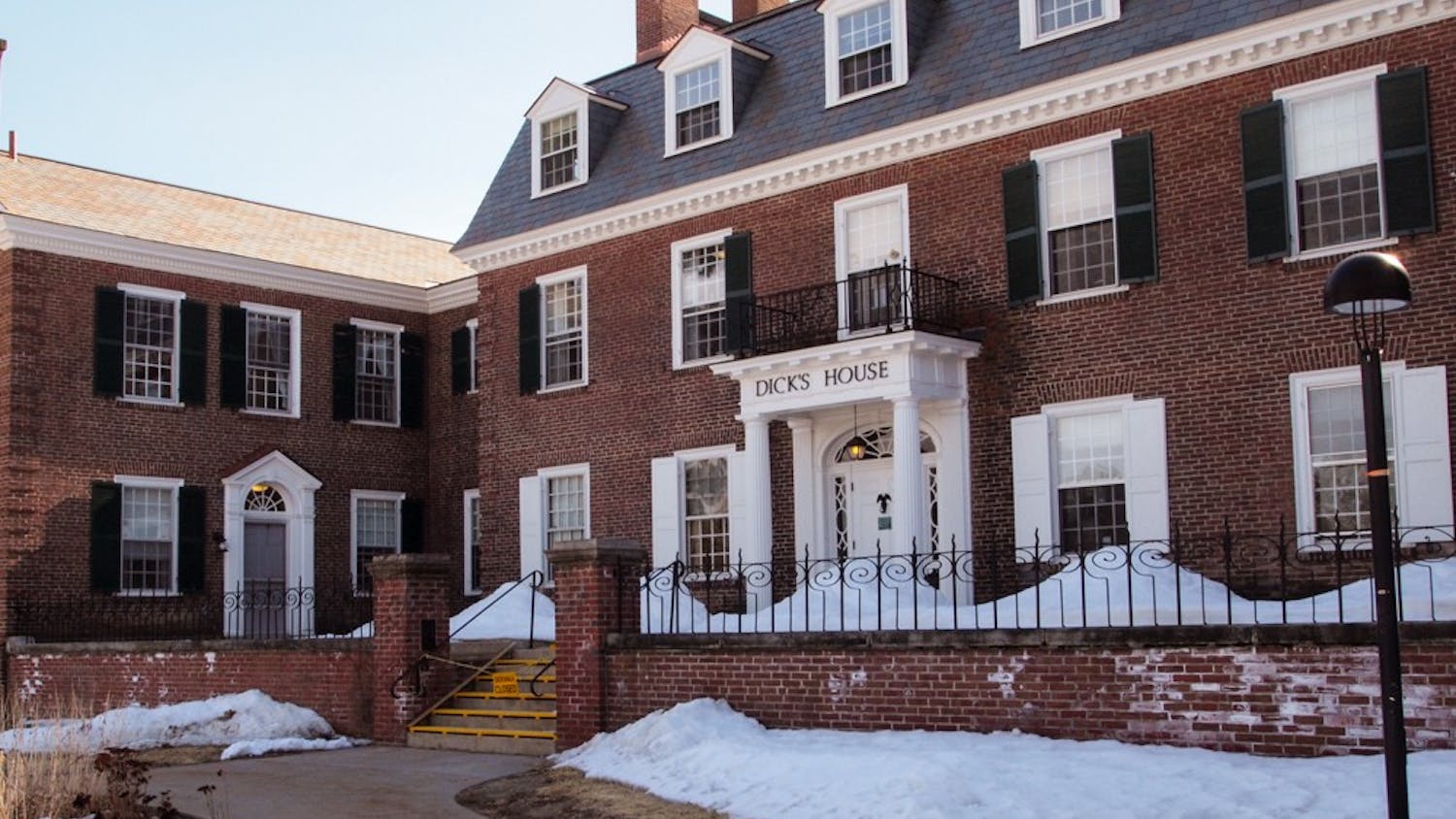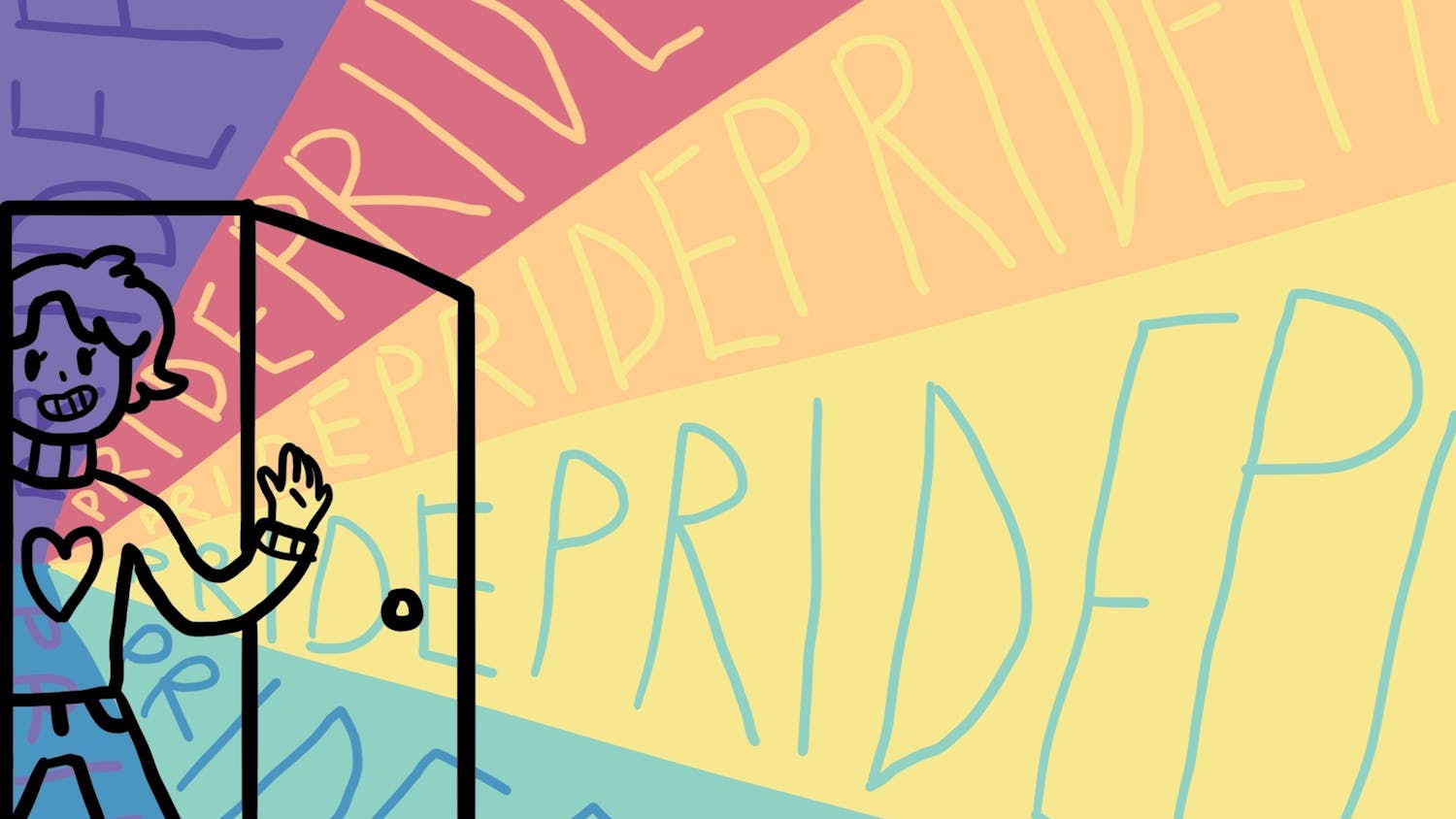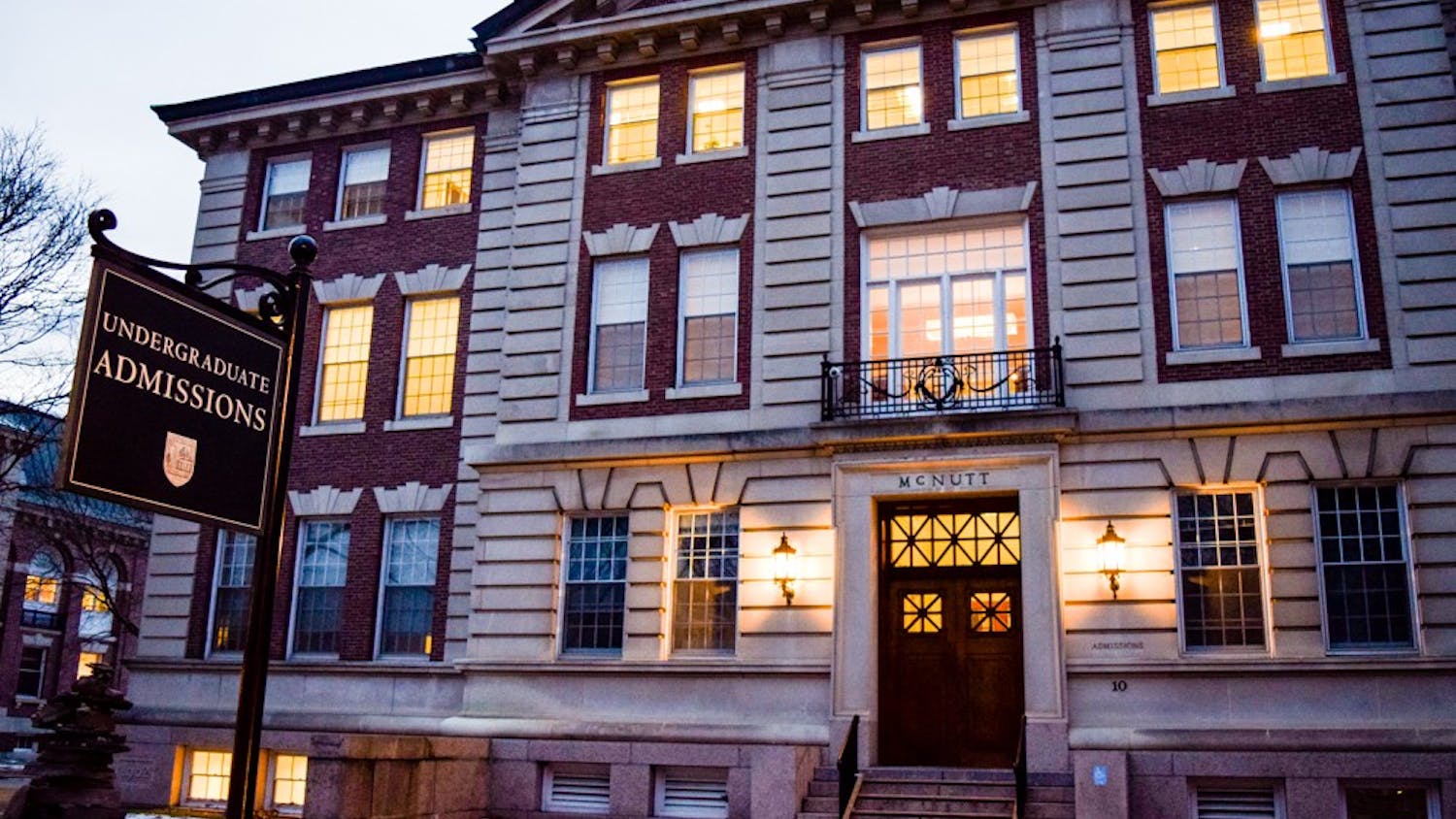Coming home for spring term means leaving many things behind at Dartmouth. Almost all students had to abandon campus, in-person classes, sports teams and social groups, all of which are losses we feel acutely. For members of the LGBTQ community, coming home can also mean abandoning or hiding entire components of their identity.
Not all LGBTQ students have to pack up their rainbow flags or leave behind gender-nonconforming clothes when they head home. Some, like me, are lucky to have openly affirming families. However, many LGBTQ students face rejection, homophobia, transphobia and other forms of emotional harm at home.
It’s a reflection of my privilege that I feel safe publishing this article under my own name, but for many students, that kind of openness is dangerous. The experience of being queer at home is different for everyone, but the conversations I had this week depicted a spring term marked by stress, sadness, isolation and a few glimmers of hope.
Olivia Kester ’23, who identifies as gay, shared how even though she was brought up in a very accepting environment — a liberal Brooklyn high school and an open-minded family — her gay identity was always on her mind.
“[In high school], I used to have a list of who I had come out to, who I should never come out to and who I wanted to come out to,” Kester said.
This caution stemmed in part from Kester’s childhood. She lived in Abu Dhabi from the ages of nine to 13, which were, as she put it, “the years when people start to figure things out.”
She shared that living in a conservative Middle Eastern city “sort of halted the process” of her coming out experience.
After her family moved to New York, Kester eventually came out to her family and to her high school classmates. She noted her gratitude for the positive responses and acceptance of her identity.
“After I came out, my parents did a good job of educating themselves. I’m pretty lucky to feel like I can be open with them about stuff,” Kester said.
Unfortunately, not all of the students I interviewed were lucky enough to be fully accepted at school and at home.
Val Werner ’20, who is a transgender man and identifies as gay, shared a few ways that his experience differs at Dartmouth and at home.
“When I’m at Dartmouth, expressing my views on LGBT and especially trans issues is pretty important to me, and I try to do some advocacy. [At home], I don’t express it as much,” Werner said. “[My family] is accepting, but there’s a line for what is okay for them.”
Silence was a common denominator among most of the students I interviewed, whether it was a general taboo concerning their overall LGBTQ identity or around certain aspects of their identities that are difficult for their families to accept or understand. Silence can be isolating under any circumstance, but it can prove especially hard to stay quiet when certain kinds of personal expression are commonly seen as political statements. When it comes to visible gender expression, even walking into the local market can be taken as a political act.
“I was going to go to CVS yesterday, and I wanted to wear heels because that sounded really fun, but I didn’t want anyone to see me and think I was making a statement and not just doing it for fun,” Werner said.
He didn’t end up wearing heels to the store. This struggle plays out over and over again in students’ lives to varying degrees of magnitude and emotional harm.
Devon, a ’22 who identifies as non-binary and queer, also shared some of their difficult experiences of gender expression at home. We communicated over text messages because Devon said that the possibility of their parents overhearing our conversation was too risky. Devon also asked to keep their last name undisclosed.
“I’m not out to either of [my parents] as non-binary and won’t be coming out to them any time soon; my mom constantly makes comments about how hard it must be to parent a trans kid and how much that must suck,” Devon wrote.
Devon also revealed that they dress differently when they are home than when they’re on campus.
“When packing up my stuff I had to leave over half my clothes behind because they would be too masculine for my parents,” they wrote.
Devon described their experience of living at home as feeling “mostly just really really alone, and like I’m lying to [my parents] which sucks, but then when my parents will say things that are transphobic, or when my dad will tell me to feminize myself, it makes me super sad.”
“I’d love to be able to better articulate that feeling, but it’s just an overwhelming sadness because I know I can never come out to them and have them accept me,” Devon said.
In light of all of the struggles that LGBTQ students are facing at home this term, many students have noted that institutional support from Dartmouth has been conspicuously absent.
Werner expressed his disappointment at Dartmouth's silence.
“I think it would help [for the Dartmouth administration] to even acknowledge the situation people are in. Maybe now there’s not much you can do in this emergency, but it would have been nice to have had structures beforehand that people could go to,” Werner said.
According to Werner, over the past few years, Dartmouth has had a few different LGBTQ organizations, but many have collapsed because leaders graduated or because of what Werner described as “the Dartmouth apathy” towards the queer community.
Kester echoed this need for institutional support.
“I think Dartmouth should have at least done some research and sent out a survey asking people if they are okay to go home.”
That’s not to say there aren’t ways queer students are staying connected to supportive communities while at home. For Devon, their Greek house has been a source of support both at Dartmouth and beyond.
“I’m in a very LGBT friendly [Greek] house and that helps a lot because my house validates me by using my chosen name and pronouns,” Devon shared.
Additionally, Werner and Devon are part of Within, a new LGBTQ organization that is trying to pick up where the last few fell off. I recently joined the group as well. According to Werner, who is Within’s Zoom chair, the organization just got approved by the Council of Student Organizations during the fall term. Although they weren’t expecting to meet remotely this term, Werner shared that Within had a great first Zoom meeting and that they are actively brainstorming more ways to support queer students this term.
Within has also been advocating for better institutional recognition of transgender students’ gender identities and chosen names, but these efforts have largely fallen to the wayside because of coronavirus.
Dartmouth has been adamant in its emphasis on staying home to stop the spread of COVID-19 and has forced almost all students to leave campus. The public health logic of this is sound, and along with most of the country, I am currently sheltering at home. But for many students, going home is dangerous in less quantifiable ways.
“Lots of students especially in the LGBT+ community have physically safe homes but not mentally or emotionally safe ones,” Devon said.
It’s true that during this pandemic, the vast majority of Dartmouth students are indeed safer at home. But there are also students who aren’t, and it’s time to break the silence.
Caris is a '23 from Long Beach, CA and is majoring in religion modified with art history. When not editing stories for the Mirror, you can find her playing club soccer, snowboarding at the Skiway or sipping coffee in Sherman Art Library. After college, she plans on attending graduate school in religion.




